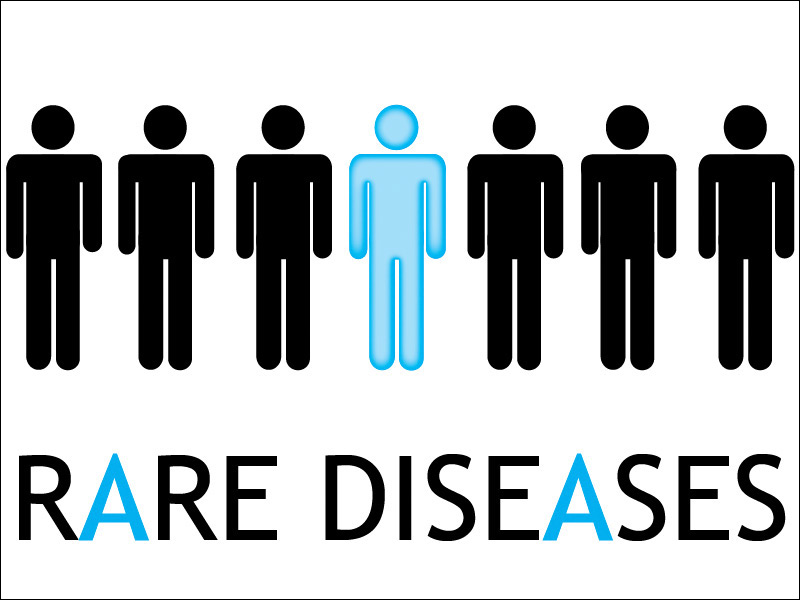Rare Diseases: Pompe Disease (Glycogen Storage Disease Type II)
The rare diseases, also called “orphan”, are diseases that affect only a small percentage of the population, generally characterized by a high degree of complexity and in most chronic and degenerative cases.
They are diseases that can strike at any age, especially in the first years of life, and which arise both for genetic reasons and for environmental factors or complications of common diseases.
Unfortunately, they are little known and often require a multidisciplinary study and a good cooperation between health centers and services.
Precisely for these reasons, people suffering undergo numerous problems, including…
- Difficulty in reaching a diagnosis in a short time
- Little interest for research
- High costs of medication or treatment
- Difficult to get good care
- Low funding sources
- Little assistance

Pompe disease is a rare, genetic, chronic disease affecting the muscle tissues both in infants than in adults. It is caused by the accumulation of glycogen in a particular cellular compartment (lysosome) to an enzyme defect 1, 4 glucosidase.
The diagnosis is complicated and requires a multidisciplinary study: tolerance tests, muscle biopsy, blood tests, analysis of enzyme activity, chest X-ray, electrocardiogram, echocardiogram, etc.
The main treatment consists of enzyme replacement therapy (administration of an enzyme precursor 1, 4 glucosidase capable of penetrating in the lysosome) and it is also important to ensure patients the proper intake of vitamins, minerals and amino acids.
The book “Extraordinary Measures” by Geeta Anand (or the eponymous film), dedicated to the Crowley family, is, in my view, a good presentation of the disease and its problems as well as an exemplary story on the fight and support this disease He deserves.
The power supply in Pompe disease
Depending on the affected muscle tissue (skeletal, respiratory or cardiac) the severity and course of the disease may vary.
For example, you may experience a difficulty in chewing and swallowing food, if the muscles of the face and jaw are damaged. This in turn can cause a weight loss, malnutrition, a digestive disorder, a slowing of intestinal transit or a degradation of muscle protein.
To address the problems related to food intake and subsequent digestion is recommended to…
- Avoid hard digesting foods, in general those excessively large, grease or solids that would prevent correct chewing and swallowing
- Cut into small pieces the food and feed themselves with small bites
- Drink and eat with confidence
- Soups, milk or other liquids can become a problem if they cross your throat too fast, to eat them more easily can accumulate with childish cream, cornstarch or sauces
- In case of necessity, use straws
- Maintain an upright position for at least 1 or 2 hours after meal
- Divide food into small meals several times a day (5-6 meals) rather than carry out only 3 large
- In case it were not possible to feed orally resort to the use of probes
You may also like to read another article on MenHealthCare: What is rhabdomyolysis? Causes, symptoms and treatments
In general, the introduction of certain changes in diet, with particular attention to macro and micronutrients, helps in the management of people with the disease. One of the most important objectives in the feeding of patients is to maintain normal blood sugar level to ensure that the glycogen stores in the muscles are minimal.
Many doctors prescribe a special diet more rich in protein and fat than a traditional diet, in particular consisting of…
- A 20-25% protein that can be found in meat, fish, milk, eggs, vegetables and other foods.
- A 20-25% fat, preferably of vegetable origin, such as olive oil (or seed oil) or of animal origin such as the blue fish.
- 50% complex carbohydrates (low glycemic index) to slow absorption such as whole wheat pasta, legumes and vegetables. It is recommended to limit consumption of simple sugars (with high glycemic index) such as white rice, sugar or refined grains to maintain blood sugar levels within normal values.
Adequate nutrition in these patients can improve their health and reduce the number of hospital admissions.
In any case, it is important that the person or family you always consult with your doctor and / or nutritionist before starting any diet.



